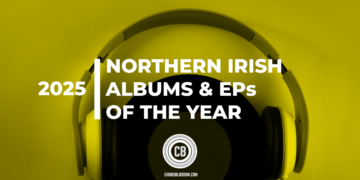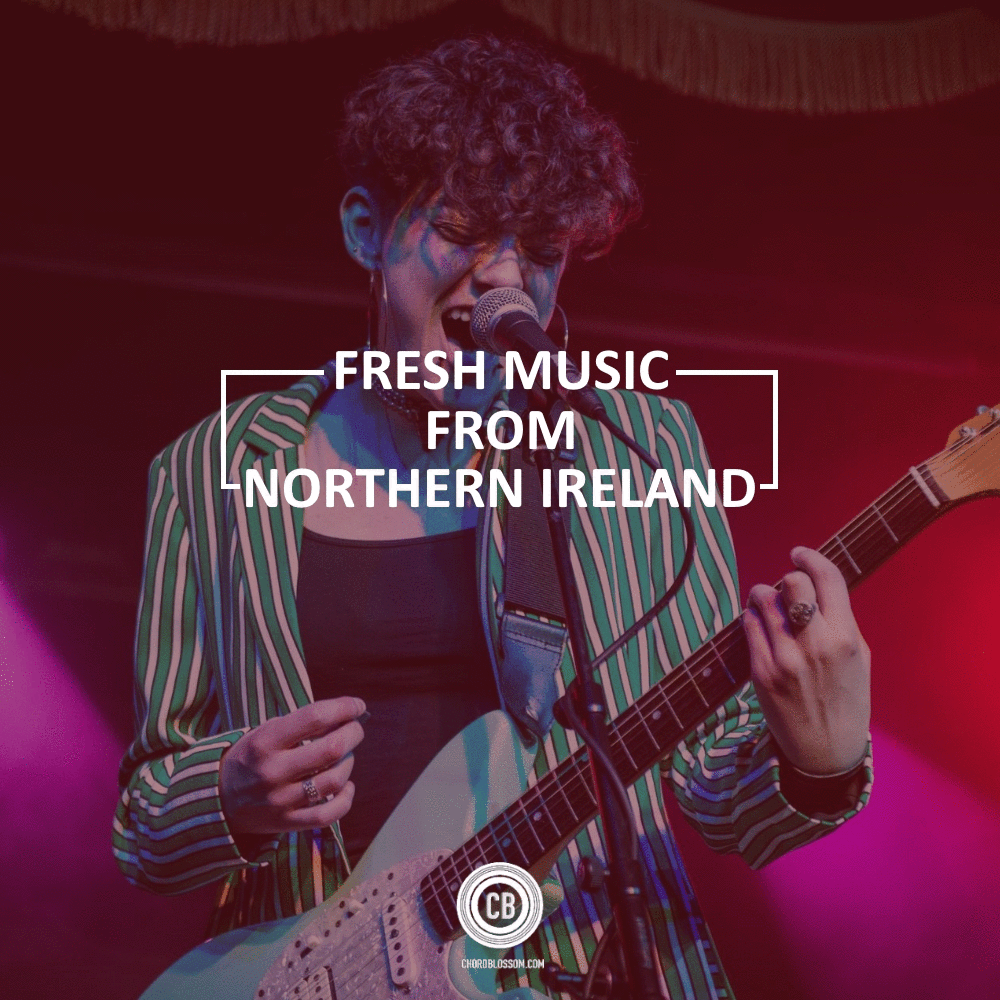The pandemic hasn’t been easy on anyone and it’s been particularly difficult for the live music industry. It’s easy to be negative about these challenges but Bangor singer-songwriter Sam Wickens is approaching it from a unique perspective.
“In the ultimate universe, there could be no pandemic and I didn’t play any gigs,” he says. “There’s a chance that you just didn’t play any gigs. You know, you could have had a strep throat. You don’t know. I think it did me wonders.”
Instead of constantly worrying about what could have been had there not been a global pandemic, Wickens focused on what he could work on now. In the pre-COVID world there was a sense of urgency so always being productive but the pandemic also brought a pause to everyone’s lives. Wickens took advantage of this time to focus on his music and sharing it in different ways aside from gigging. One side effect of the pandemic is the amount of business which moved online. As a result he and his management team have been able to make international connections in ways that weren’t feasible with travel and busy schedules pre-COVID. Another product of the newfound time is the EP “Watson”.
“Watson” is a pseudonym for Wickens, created in a worst case scenario. It’s a heavy album with clear ties to his love for Bon Iver and The National, not only through lyrics but the unique sampling. There’s a desperation you can hear through the music and rightfully so. Wickens created “Watson” as a way to conceal his music in case he wasn’t alive to release it himself.
“It was just real blatant struggles that I was going through,” Wickens explains about the inspiration behind the EP. “Then whenever I kind of came out of the other side of stuff, I just felt I kind of want people to hear this.”
Wickens is extremely open about his mental health struggles that have been ongoing since his childhood in Bangor. Mental health is an urgent issue in Northern Ireland despite the often lack of conversation. The suicide rate in this country is higher than anywhere else in the UK and mental health disorders occur 25% more according to the Mental Health Foundation. There’s a lot more research and non-profit initiatives now than there were 10 years ago, but there’s a lot of room for growth considering how mental health has been approached in the past.
For Wickens the support was slim and ineffective in many ways. The schools he went to did have a counsellor however they outed Wickens in front of the whole class for having to go to therapy which caused more issues with bullying rather than solutions. Even out of school services were dated for the time.
“They would bring the child, me, into one room, and the adults in another room,” Wickens explains about his experience with family therapy. “Then they would ask you to tell a story like ‘what happened at home?’, and then bring you back in and then say ‘alright, one of you is lying. Because you said this, and you said that, so one of you is lying so figure it out.
GPs were little help as they were not adequately trained to deal specifically with adolescent mental illness and Wickens was heavily medicated and sedated. He received a diagnosis of autism when he was 15 but even with a diagnosis the services available didn’t increase. Wickens found that unless you were at a breaking point and suicidal there was not any clinical support. The depression and anxiety just piles up until it hits that breaking point, a place Wickens experienced multiple times, and survived to share his experience.
“I used to see a psychologist who is unbelievable and he said the last part of recovery is helping somebody else get through what it was that you went through,” Wickens explains. “There’s no point in me, having so much experience with mental health problems, mental illness, depression, and just keeping it to myself. I knew that people are generally scared by talking about it and I just don’t have that fear.”
There’s been times when his mental health issues affected his music but the response in the creative community seemed to be worlds apart from his childhood experiences in school. Wickens noted that in his experience other creatives, from photographers to musicians to producers, are more understanding.
“I’ve had one gig that I had a massive panic attack and I couldn’t do it,” Wickens recalls a show about two years ago. “I was crying. It was at the peak of like whenever I was at my worst. I just had a panic attack and I’d never really had one before, and it wasn’t about performing, it was just about everyone seeing me.
Katie Richardson, a fellow Belfast musician, songwriter, and composer, approached Wickens.
“She came up to me and she was like, ‘Sam don’t feel like you need to do this’. And I was like ‘I don’t want like everyone down’ and she was like ‘no, you’ll let us down if you don’t help yourself. We want you to get better’.”
“Watson” chronicles the process of getting better when a person is at that breaking point. It’s heartbreaking and healing at once. Wickens is thrilled with the response to the EP so far. It’s been played on radios around the country and gotten shared through various publications. There’s even a live gig planned at the Workman’s Club in Dublin on April 1st if restrictions permit.
“With the EP I just wanted to really share something personal,” Wickens says. “And whenever I listen through it, it’s weird because it’s even tough for me because it’s just like each song represents a certain part of a year that I was going through. It’s just like wow, not only did I get through that, but how did I manage to write something about it when I just probably wanted to stay quiet? As long as people are able to connect with it, somewhere deep, that’s what I want.”








